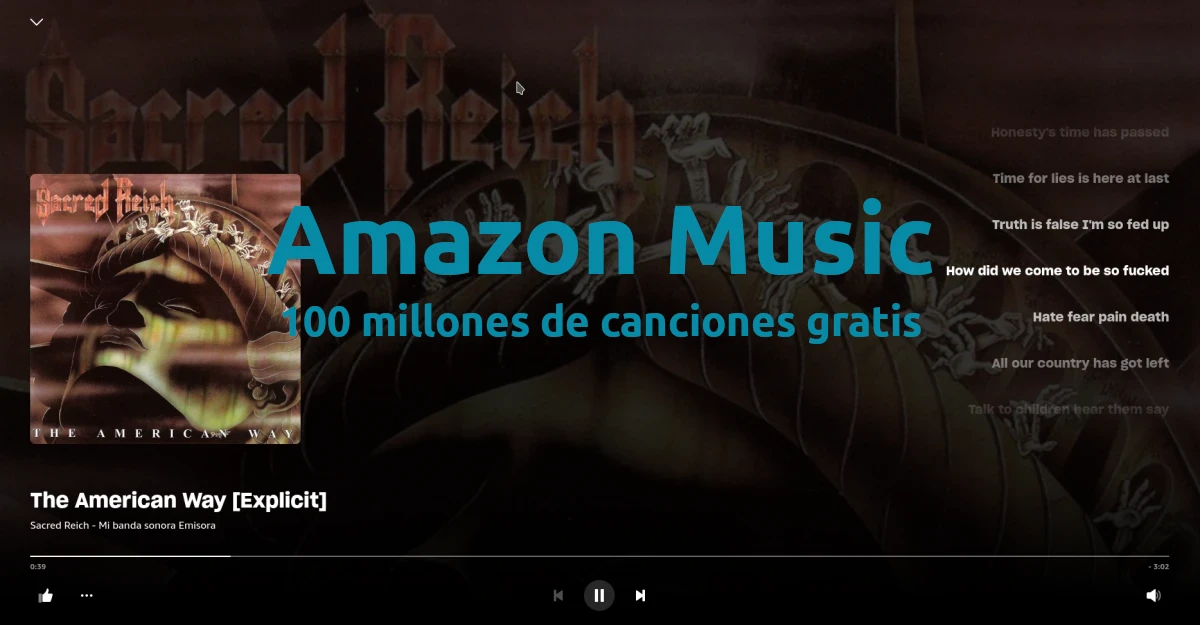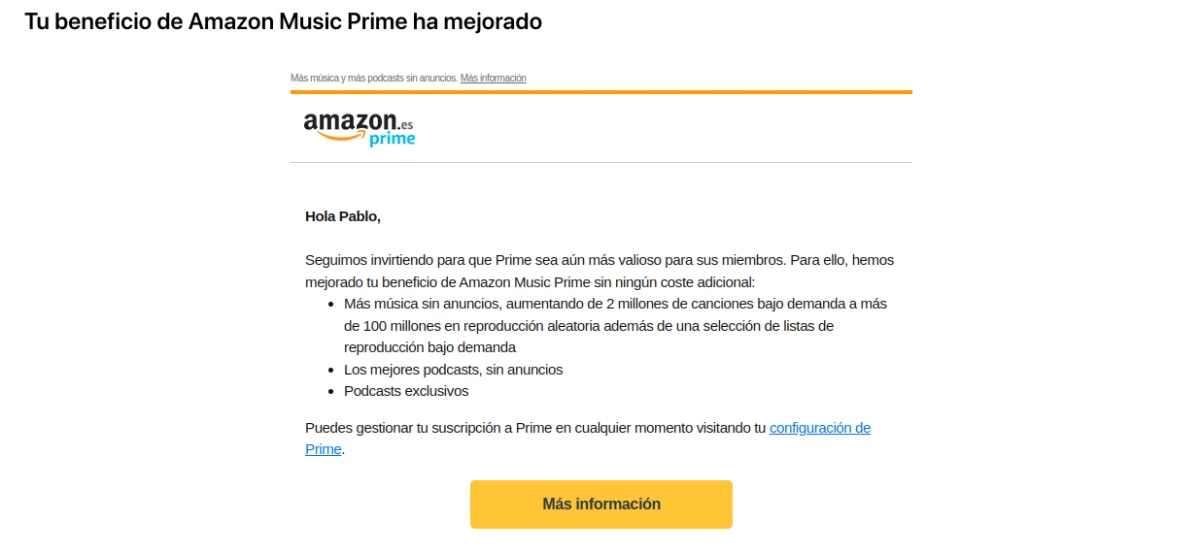
I think it was yesterday when I read in an Anglo-Saxon medium that Amazon Music It had started to be free for all Prime users, but I did not pay much attention to the news due to price issues. In the United States, Prime costs $139, and in Spain, the country where I live, €49 per year. I just didn't think that promotion would reach my subscription, but this morning I received the email confirming that it has.
From now on, at the price of €49 per year or €3.99 per month, prime users We'll also have access to the more than 100 million songs in the Amazon Music catalogue, which must have made rival services plant their ears. The best thing about this improvement, forgive the redundancy, of the service is that existing users will not notice or have to do anything, but there is a big "but" for everyone, and two for Linux users.
Linux users can only listen to Amazon Music from the web
Amazon Music is available for Android, iOS, and PC, but only for Windows computers. Logically, it is also available on Echo-type devices (smart speakers with Alexa), but not for Linux. It was something I hadn't even considered until today, when I've been given access to those none other than 100 million songs, but it's not like this "surprise" was like a jug of cold water.
In addition, it has been developing for a long time Cloud, a player from which it could access content from different streaming music services, including Amazon Cloud Player, which, honestly, I don't know if it had anything to do with the current Amazon Music. What is certain is that the Linux users can only access from the web version to Amazon Music, at least for now.
The most serious: only random music
The second "but" annoys a little more, and makes it clear that this is more of a marketing strategy than anything else, probably now that it is known that Apple has raised the price of its service and Spotify is expected to follow. The point is that we have access to those 100 million songs, but we cannot navigate that sea of music and fish for what interests us. What we can do is enter an artist, album or song and hit the play button, which instead of a “play” triangle are the two intersecting arrows for “random”.
From my point of view, this has two ways of looking at it:
For those who don't mind listening to random music, the service is very good, brutal, in fact. You can, for example, enter album X of artist Y, press play and it plays the whole thing, but out of order. This one doesn't count. In my first test, I played three of an album and then switched to a station based on the chosen album.- It serves as a kind of personalized radio application, to choose the station between one that is based on an artist, song or the lists that Amazon has created.
- It allows us to see how everything Amazon has organized. Apple has a very neat service that looks a lot like a normal music player, and I think that earns it a few points. Spotify is more of a web service, somewhat less neat. Amazon Music is halfway there, and it could be the best option of the three now that Apple has raised prices.
plays its part
This improvement in the service will play its role for me, just, but it will. It will help me to "listen to radio stations" different from what I usually listen to. Also, there are no ads, which is nice. But there is a limit when passing songs, which is not so good. What I can't deny is that I'm going to try it thoroughly, and who knows, if I like it and I don't miss anything, I'll take the leap.
